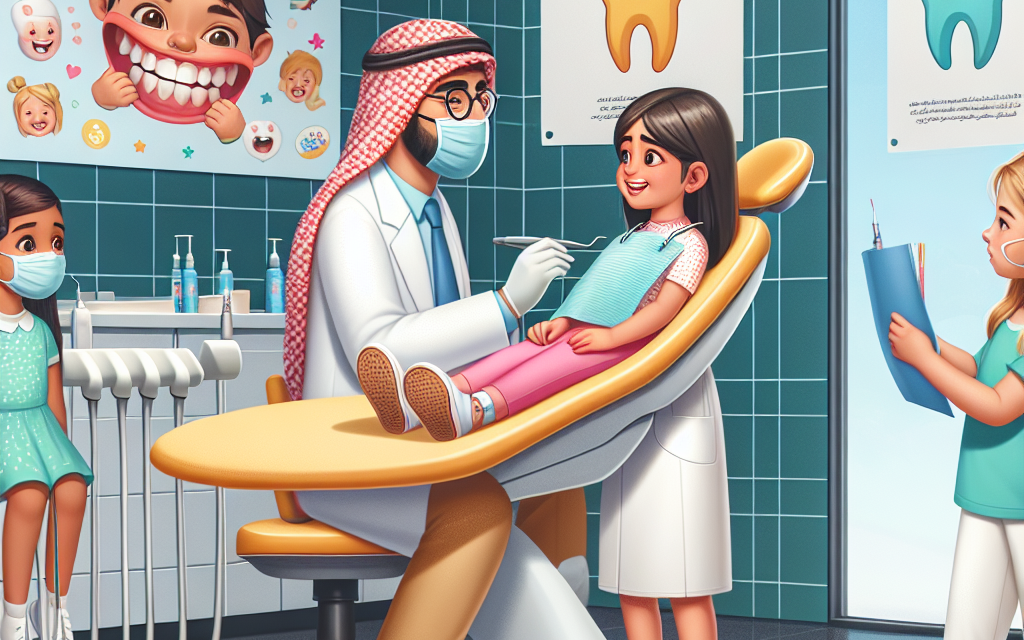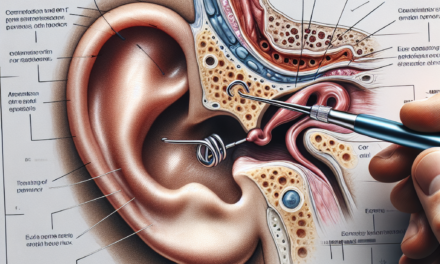Easing Children’s Dental Anxiety: The Role of Local Pediatric Dental Specialists
Dental anxiety is a common issue among children, often stemming from fear of the unknown, previous negative experiences, or even the intimidating environment of a dental office. Pediatric dental specialists play a crucial role in alleviating this anxiety, ensuring that children receive the dental care they need without fear or distress. This article explores the various strategies employed by pediatric dentists to ease children’s dental anxiety, the importance of a child-friendly environment, the role of communication, the impact of parental involvement, and the benefits of early dental visits.
Understanding Dental Anxiety in Children
Dental anxiety can manifest in various ways, from mild apprehension to severe phobias. Understanding the root causes of this anxiety is essential for pediatric dental specialists to address it effectively.
Children may experience dental anxiety due to:
- Fear of Pain: Many children associate dental visits with pain, often fueled by stories from peers or adults.
- Fear of the Unknown: The unfamiliar sounds, sights, and smells of a dental office can be overwhelming for a child.
- Previous Negative Experiences: A bad experience at the dentist can lead to long-lasting fear and anxiety.
- Parental Anxiety: Children often pick up on their parents’ fears and anxieties, which can exacerbate their own.
- Developmental Factors: Younger children may not fully understand the purpose of dental visits, leading to confusion and fear.
Statistics indicate that approximately 20% of children experience significant dental anxiety, which can lead to avoidance of necessary dental care. This avoidance can result in more severe dental issues in the long run, making it imperative for pediatric dental specialists to implement effective strategies to ease this anxiety.
The Importance of a Child-Friendly Environment
The physical environment of a dental office plays a significant role in a child’s comfort level. Pediatric dental specialists are trained to create a welcoming and friendly atmosphere that can help alleviate anxiety.
Key elements of a child-friendly dental environment include:
- Colorful Decor: Bright colors and fun themes can make the dental office feel less intimidating. Many pediatric offices feature cartoon characters, playful murals, and interactive play areas.
- Child-Sized Equipment: Using equipment that is appropriately sized for children can help them feel more comfortable and less threatened.
- Waiting Areas with Activities: Providing toys, books, and games in the waiting area can distract children and ease their anxiety while they wait for their appointment.
- Friendly Staff: Staff trained in child psychology can engage with children in a way that makes them feel safe and understood.
- Positive Reinforcement: Offering rewards, such as stickers or small toys, for good behavior can motivate children and create a positive association with dental visits.
For example, a study published in the “Journal of Dentistry for Children” found that children who visited a pediatric dental office designed with a child-friendly environment reported lower anxiety levels compared to those who visited traditional dental offices. This highlights the importance of creating a space that caters specifically to the needs of children.
Effective Communication Strategies
Communication is a vital tool in easing children’s dental anxiety. Pediatric dental specialists are trained to communicate with children in a way that is both informative and reassuring.
Some effective communication strategies include:
- Using Simple Language: Pediatric dentists should avoid complex medical jargon and instead use simple, age-appropriate language to explain procedures.
- Desensitization Techniques: Introducing children to dental tools and explaining their purpose can help demystify the process and reduce fear.
- Encouraging Questions: Allowing children to ask questions and express their fears can help them feel more in control and less anxious.
- Storytelling: Using stories or analogies can help children understand what to expect during their visit in a relatable way.
- Positive Framing: Framing dental procedures in a positive light, such as emphasizing how they help keep teeth healthy and strong, can shift a child’s perspective.
A case study involving a pediatric dental practice in California demonstrated the effectiveness of these communication strategies. By implementing a program that focused on clear, positive communication, the practice reported a 30% decrease in patient anxiety levels during visits. This underscores the importance of effective communication in pediatric dentistry.
The Role of Parental Involvement
Parental involvement is crucial in helping children cope with dental anxiety. Pediatric dental specialists often work closely with parents to ensure that they are equipped to support their children before, during, and after dental visits.
Ways parents can help include:
- Modeling Positive Behavior: Parents should demonstrate a positive attitude towards dental visits, as children often mimic their parents’ feelings and behaviors.
- Preparing Children: Discussing what to expect during a dental visit in a calm and positive manner can help alleviate fears.
- Encouraging Independence: Allowing children to express their feelings and make choices, such as selecting a flavor of toothpaste, can empower them and reduce anxiety.
- Reinforcing Positive Experiences: After a successful visit, parents should celebrate the achievement, reinforcing the idea that dental visits can be positive experiences.
- Seeking Professional Guidance: If a child exhibits severe anxiety, parents should consult with the pediatric dentist for additional strategies and support.
A survey conducted by the American Academy of Pediatric Dentistry found that children whose parents actively participated in their dental care reported lower levels of anxiety. This highlights the significant impact that parental involvement can have on a child’s experience at the dentist.
The Benefits of Early Dental Visits
Establishing a dental home early in a child’s life can significantly reduce dental anxiety. Pediatric dental specialists recommend that children have their first dental visit by their first birthday or within six months of the eruption of their first tooth.
Benefits of early dental visits include:
- Familiarization with the Dental Environment: Early visits help children become accustomed to the dental office, reducing fear of the unknown.
- Building Trust: Regular visits allow children to build a trusting relationship with their dentist, making them more comfortable during future appointments.
- Preventive Care: Early dental visits enable pediatric dentists to identify potential issues before they become serious, reducing the need for more invasive procedures that can cause anxiety.
- Education for Parents: Early visits provide an opportunity for parents to learn about proper oral hygiene practices and dietary choices that promote dental health.
- Positive Reinforcement: Early positive experiences at the dentist can create a lifelong habit of regular dental visits, reducing anxiety in adulthood.
A longitudinal study published in the “Pediatric Dentistry” journal found that children who had their first dental visit by age one were significantly less likely to experience dental anxiety later in life. This emphasizes the importance of early intervention in promoting positive dental experiences.
Conclusion
Easing children’s dental anxiety is a multifaceted approach that involves creating a child-friendly environment, employing effective communication strategies, encouraging parental involvement, and promoting early dental visits. Pediatric dental specialists play a vital role in implementing these strategies, ensuring that children receive the necessary dental care without fear or distress.
By understanding the root causes of dental anxiety and addressing them through thoughtful practices, pediatric dentists can help children develop a positive relationship with dental care. This not only benefits the child’s immediate dental health but also sets the foundation for a lifetime of good oral hygiene habits.
As parents and caregivers, it is essential to support children through their dental experiences, modeling positive behavior and reinforcing the importance of dental health. Together, with the expertise of pediatric dental specialists, we can work towards a future where dental anxiety is significantly reduced, allowing children to smile confidently and maintain healthy teeth for life.





